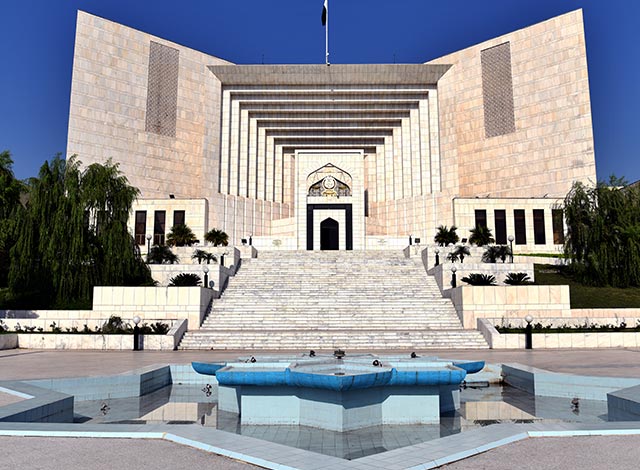The majority judgment criticized the ECP for participating as a primary contesting party in the case, instead of its appropriate role as an impartial facilitator

ISLAMABAD: In a significant ruling, the Supreme Court of Pakistan has issued a detailed 70-page verdict declaring the Election Commission of Pakistan’s (ECP) decision regarding reserved seats unconstitutional. The judgment, authored by Justice Mansoor Ali Shah, annulled a previous ruling from the Peshawar High Court (PHC) that had affirmed the allocation of reserved seats to the Pakistan Tehreek-e-Insaf (PTI). The verdict was delivered by an 8-5 majority from a full bench led by Chief Justice Qazi Faez Isa, with notable dissent from Justices Yahya Afridi, Aminuddin Khan, Jamal Khan Mandokhail, and Naeem Akhtar Afghan, who underscored the importance of proportional representation.
The court emphasized that the ECP is not merely an administrative body but a fundamental “guarantor institution” of democratic processes, akin to a “fourth branch of government.” It noted the critical role the ECP plays in ensuring the transparency and fairness of elections, essential for maintaining public trust in the electoral system. The judgment remarked, “Unfortunately, the circumstances of the present case indicate that the Commission has failed to fulfill this role in the General Elections of 2024.”
The majority judgment criticized the ECP for participating as a primary contesting party in the case, instead of its appropriate role as an impartial facilitator. The judges highlighted that the ECP’s core function, as stipulated in Article 218(3) of the Constitution, is to organize and conduct elections honestly and fairly. The court stated that the Commission had assumed quasi-judicial functions by adjudicating counterclaims from political parties regarding the disputed reserved seats, a role it was not entitled to contest as an aggrieved party.
The ruling stressed the necessity of judicial intervention when the ECP makes significant errors impacting the electoral process. The Supreme Court underscored that maintaining electoral integrity is vital to preserving the legitimacy of democracy. It articulated that election disputes involve not just the interests of the parties involved but also the rights of the voters and the broader constituency, reinforcing the public’s stake in ensuring free and fair elections.
In addressing the relationship between electoral justice and political rights, the court reaffirmed the essential nature of political participation, citing Articles 17(2) and 19 of the Constitution. It stated that the right to form political parties and contest elections are pivotal for a socially just environment. The verdict articulated that a declaration of a political party’s ineligibility to obtain an election symbol does not impede its other constitutional rights, which must be preserved for democratic participation.
#SupremeCourt, #ECP, #ReservedSeats, #PTI, #PakistanPolitics, #Democracy, #ElectoralIntegrity, #JudicialIntervention, #PoliticalRights, #Constitution, #ElectionCommission, #PoliticalParticipation, #PublicTrust, #ElectoralJustice, #GeneralElections2024, #ConstitutionalRights



